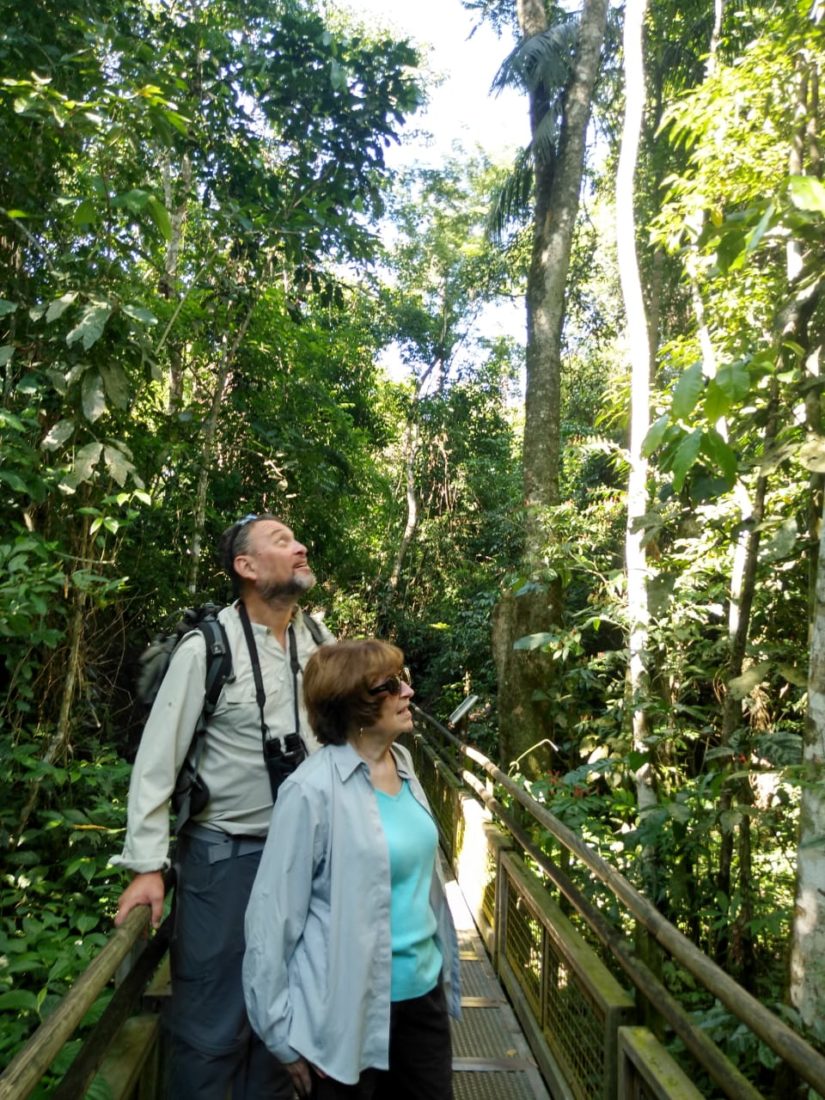Our three Relais & Chateaux lodges – Awasi Atacama, Awasi Patagonia and Awasi Iguazu – are each designed firmly with their surroundings in mind, giving visitors a sense of place to complement the unique and stunning locations in which each is built.
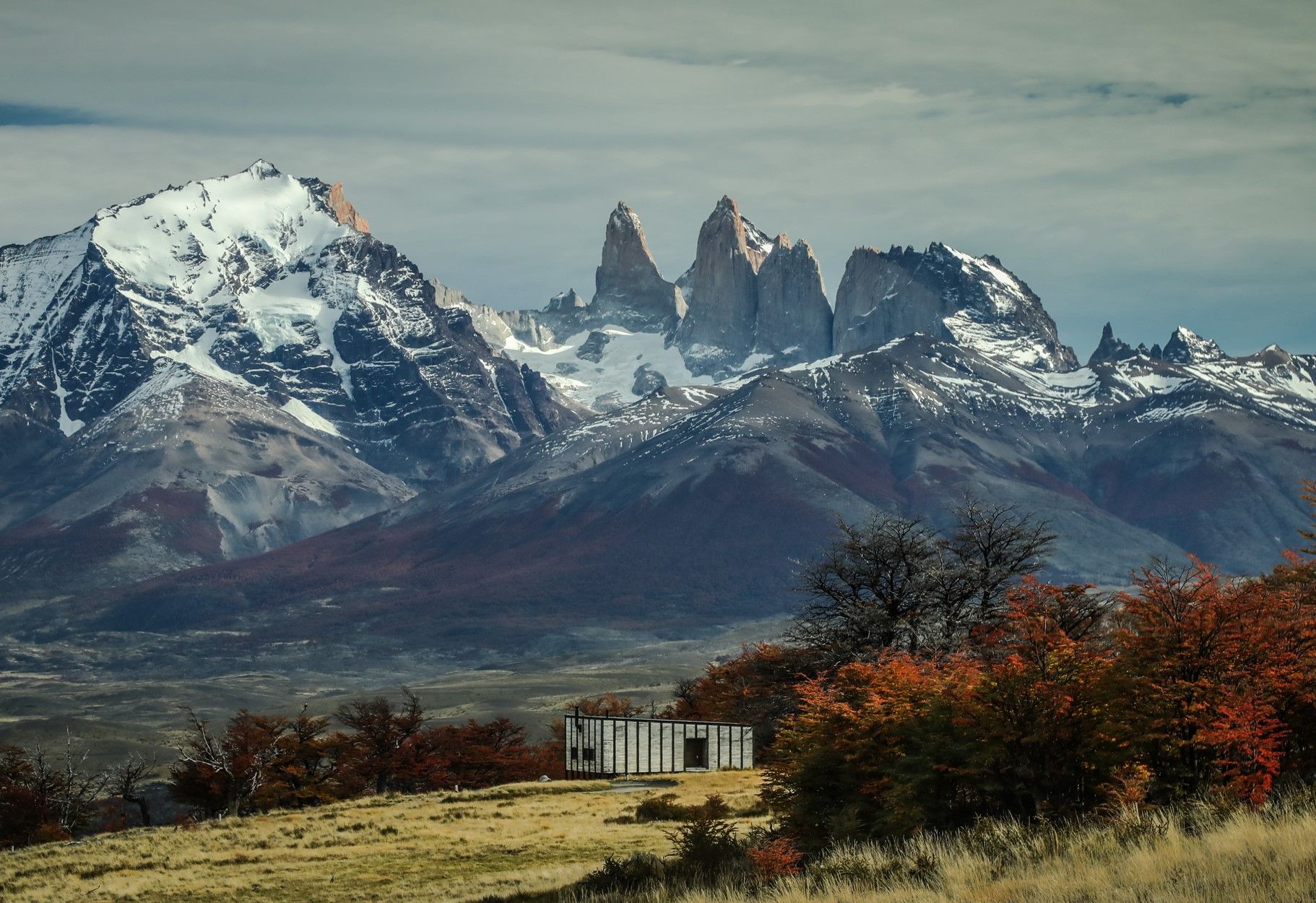
Individual villa at Awasi Patagonia, Relais & Chateaux
The expansive views from Awasi Patagonia’s lodges match the panoramic views over the vast wilderness of Torres del Paine; whilst the rooms at Awasi Iguazu are built on stilts, giving the sensation that one is peering right in to the jungle canopy. Awasi Atacama, recently renovated, has been constructed using traditional building techniques unique to the region with adobe suites bedecked with handmade and locally sources artesanal goods. The culture of the Atacama Desert is firmly at its heart.
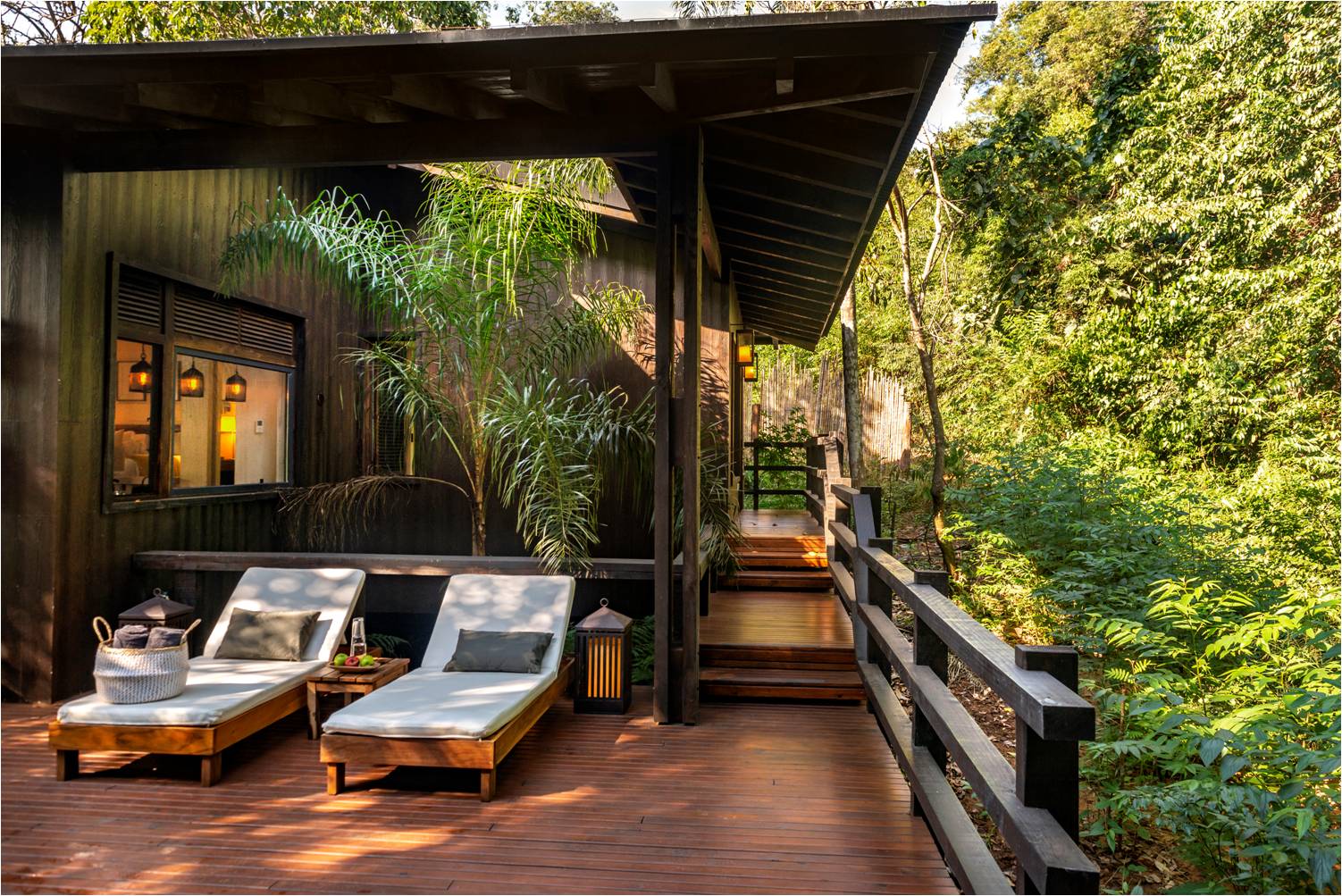
Villa at Awasi Iguazu, Relais & Chateaux
Whilst the lodges themselves, as well as the food and excursions, are certainly a product of their environments, one element of Awasi has never been quite so beholden to its geographical location. There’s only one way to put together a world class team to serve our guests, and that’s to scour the world to find them. We are proud of our multi-cultural team including at least 17 different nationalities: a broad, diverse community to match the variety we see amongst our guests.
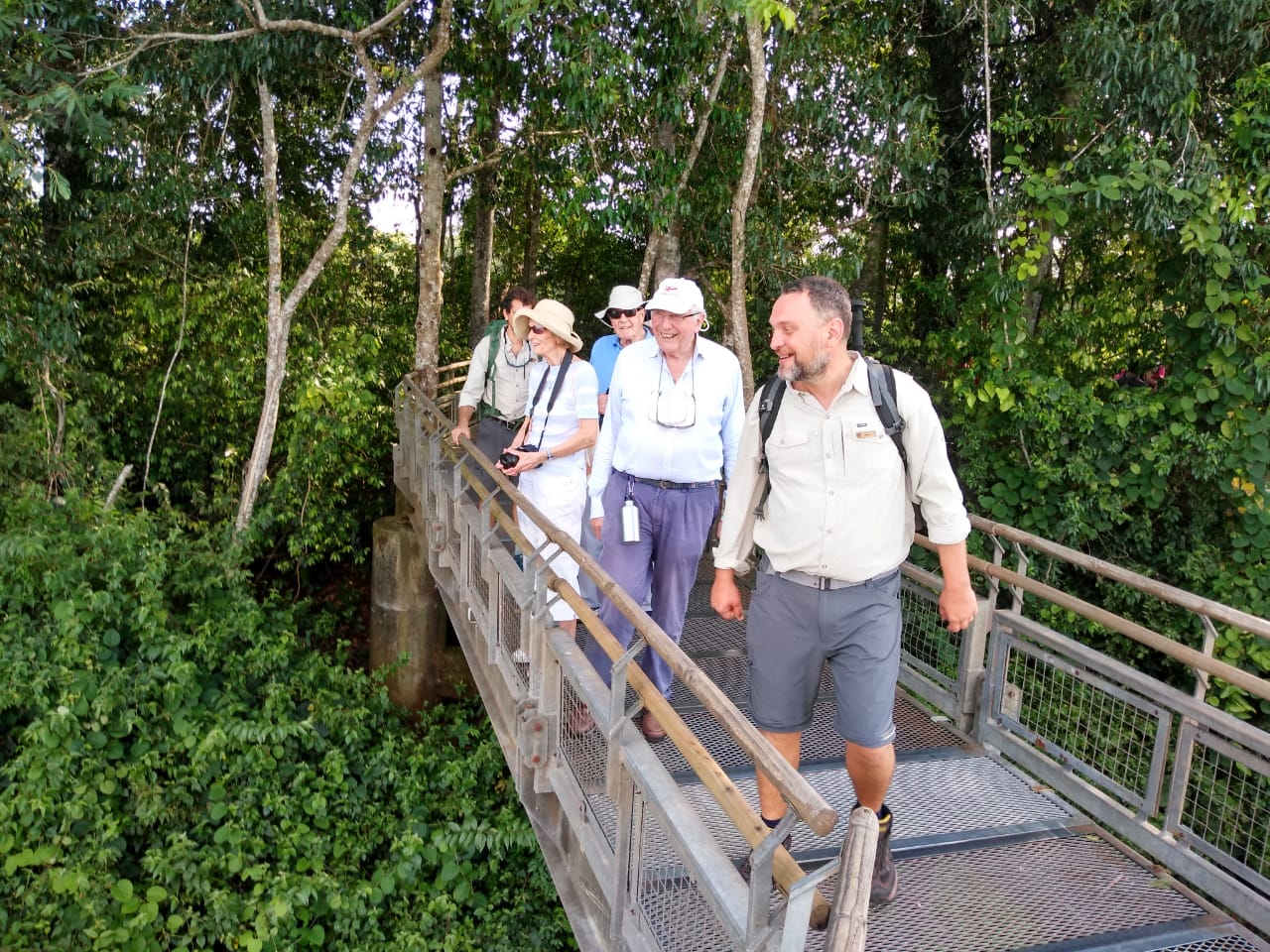
Jimmy showing some guests the best of the Iguazu Falls
And there’s no-one that sums this up more than Jimmy McCormick, a hugely popular member of our team at Awasi Iguazu. Born in Brazil to Argentinian parents, with a name that could be Irish and an Australian-twang to his accent – Jimmy’s childhood took him around the world before he finally settled back in Misiones working in our guiding team.
“I was actually born in a little city called Guaruyá, on the coast of the state of Sao Paulo, in Brazil” explains Jimmy. “My father was working there at the time. However, I started travelling early on, as he was transferred to Acapulco, Mexico when I was just 8 months old and I moved to Australia with my mother when I was just 2 years old after they split up. We settled in Perth and this is where I spent most of my childhood and as a young adult, so I have many memories from Australia.”
So what were Jimmy’s impressions of Australia?
“As a child, I remember it as an idyllic, happy, innocent place”. Jimmy lived in Australia until he was 23 years old.
“Being an only child with a single mother there were some challenging parts, but all in all I had a great good group of friends who are still my mates until this day. As a teenager I went to an all-boys school, which was very big and a bit more difficult – socially. However, I was actively involved in sports (tennis, rugby, swimming, basketball), which is what I was best at and filled up most of my time. I was also an altarboy for a long time, and my mom even wanted me to be in the church choir, but unfortunately I had a horrible voice so they kicked me out!
“Mostly, what I took away of Australian culture is that if you work really hard and well, they will reward you and give you opportunities to move along in life.”
Estranged from his father growing up, Jimmy later discovered he was an international rugby player for Argentina’s national team, the Pumas.
So, does Jimmy play any rugby himself?
“To be honest, I didn’t know much about my father growing up and I didn’t know that he was once a rugby player until I was much older. However, it felt great when I learned that about him as it made me understand more about myself and feel a connection with him.
“I always wanted to play rugby as a little kid. When I first came to Argentina at age 7 I remember everyone was playing soccer, and I saw a rugby ball just lying around and wanted to teach the other kids how to play it. I tried to teach the other kids quite simply, “whoever’s got the ball you’ve gotta try to bring them down – you’ve got to smash them”. I got in trouble for that and the headmaster of the school called my mom and I got put in detention.
“I happened to play rugby semi-professionally as a teenager in Australia, of course rugby is very popular there, but it turned out I was very good at it.
“I only found out about my father’s background playing in the Pumas later on, and quite honestly it felt great to have that connection, but it is not something I mention a lot. It is just anecdotal.”
What was your first job when you finished school? What was it like?
“The last few years of high school I became a bit of a rebel and didn’t really know what I wanted to study. My neighbors in Perth were cray fishermen, and I spent a lot of time with them and they were really great people. While I figured out what I wanted to study, they offered me a job at the crayfish processing plant. I had to be there at about 2 am and we had to work until 10 am, processing lobsters. It was hard work, but I really enjoyed it.
“But I was really attracted to working on one of the crayfishing boats. They told me it was really difficult to get a job on one of the boats, but I felt really motivated and started studying to get all the necessary licenses. The next fishing season I offered to start working on one of the boats for free, just for the experience. After about three months of working non-stop with no free days, one of the guys didn’t show up for work and they offered me a position.
“It was a lot of sacrifice, long hours and hard work, but I loved it. The guys I worked with were incredible, had all sorts of backgrounds and nationalities, and I learned a lot from them. It taught me that, when you put a lot of hard work into it, and show up on time and get the job done responsibly, you can go somewhere in life.”

@Getty Images for Forbes Travel
When did you first travel back to South America, and when did you move back for good? What was it like coming back to the land of your birth?
“I actually first came to Argentina with my mother when I was 7 years old in 1985. We settled in Puerto Madryn, a coastal town in Patagonia where her family is from and administered a farm. I did third year of primary school there, but the adjustment was pretty rough. I struggled with the language and was quite lonely, and I got my first punch in the face 3 days into school – I remember it as if it were yesterday. You could say it roughened me up a little.
“We spent 2 years there and finally went back to Australia, which was a relief for me at the time!
“When I came back for good, at age 23, it was a whole different experience. I got to meet a lot more people, family and friends, and really understood the difference between a friendship in Australia and in Argentina. I mean, don’t get me wrong, I love my Aussie mates and they are really great, but everyone keeps more to themselves and are in their own little bubble. When I got here, people started to ask me sincerely about myself, about my mother, about her health… Honestly offering to help, they really cared, as if they were the closest family. Apart from my mother, that was a feeling that I had never had, and it blew me away.
What did you turn your hand to when you settled back in to life in Argentina?
“When I settled in Argentina, at first it was a bit tricky to get a job. I guess people were suspicious of an Aussie fellow trying to get work here, they must have thought I was hiding something! At first I did lifeguard training, and worked as a lifeguard on a beach for several months. After a while, this became boring and I turned to restaurants and bars. I waited tables, then learned to do cocktails and became a bartender, and so I slowly got into the hospitality industry. Puerto Madryn is a city that is close to the Peninsula Valdes area (a famous whale-watching and wildlife spot in Argentine Patagonia), and I was really drawn to nature, so I spent a lot of time going there. Because of my English, I got to work more and more with international tourists. Eventually I was able to open a small Inn in Puerto Pirámides with some other partners, and for some years I was the attendant. We had to do a little bit of everything, prepare breakfast, make reservations, fix the bathroom, do guided tours. This is when I realised I really enjoyed working in tourism.”
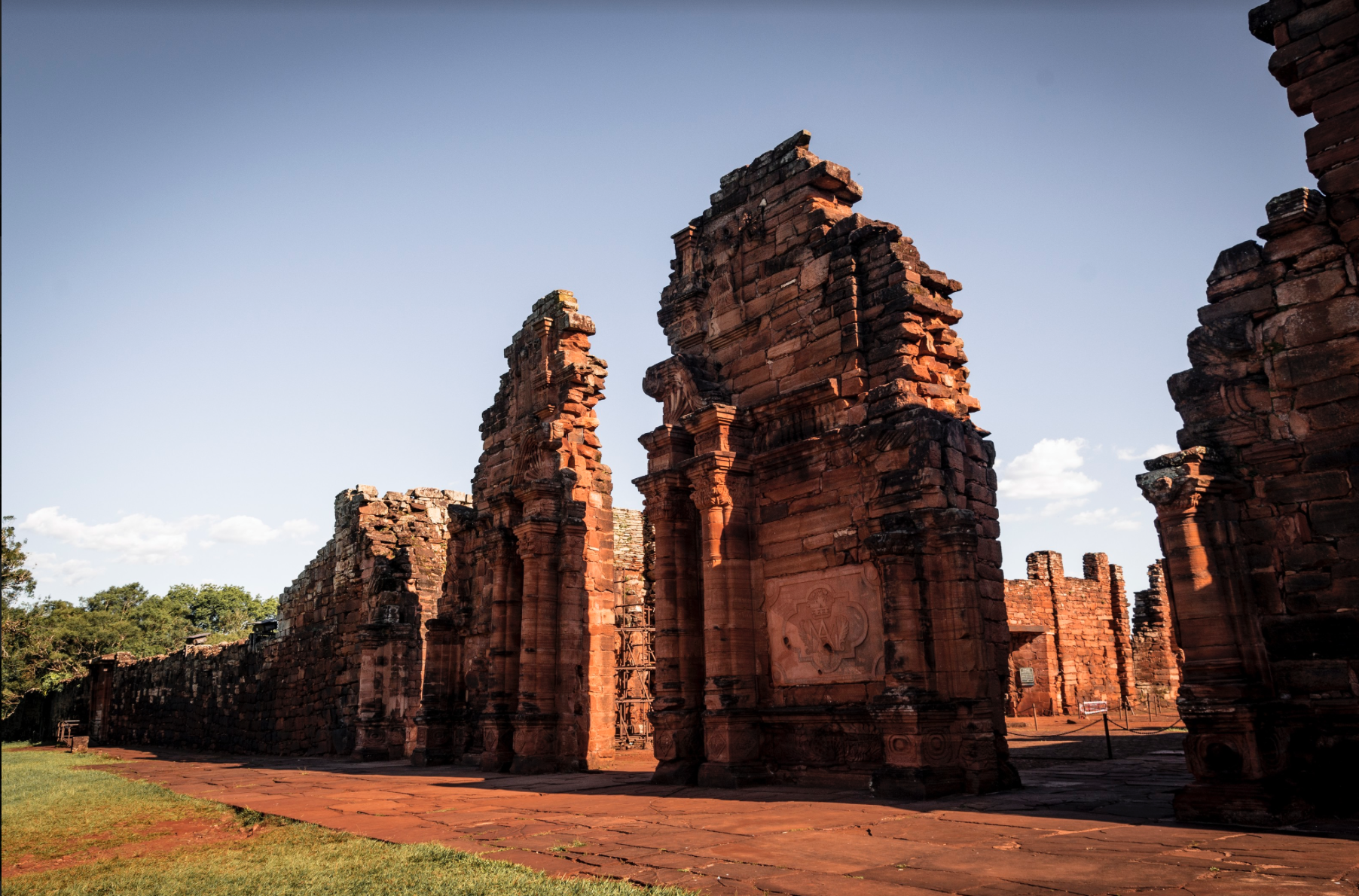
What brought you to Misiones? How does it compare to your time in Australia?
“What brought me over to Misiones is my wife Silvia, whose family is from San Ignacio. We met each other working in Patagonia, but after we got married she really wanted to be close to her family so we moved to Misiones.
“San Ignacio is a small town, it is best known for the Jesuit Missions which are a UNESCO World Heritage site. While they are very little know to international tourism, they do get quite a few local visitors. I became a certified guide to work there and became really passionate about history and anthropology in this area.”
How does it compare to Australia?
“Well, I lived on the west coast of Australia which is the desert, so apart from the red earth it is really quite different! It wasn’t initially the place that most appealed to me to live in, with all the heat and humidity, but eventually I fell in love with the place.”
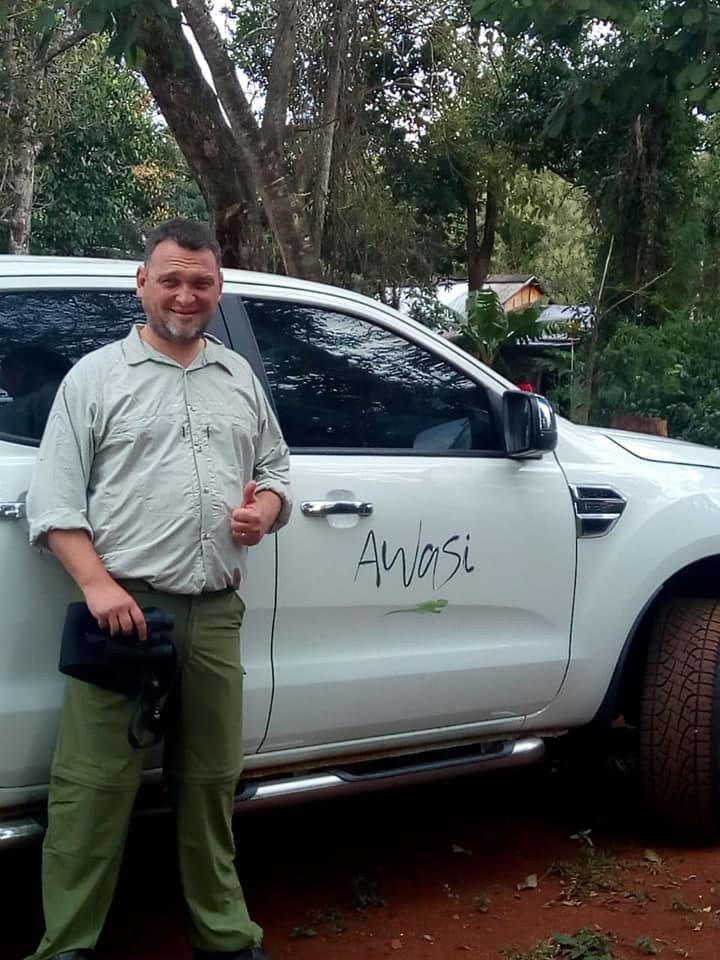
How long have you been working for Awasi? Tell us how you came to be a guide.
“I started working at Awasi in July 2018, so it’s been almost two years. Awasi Iguazu opened in February 2018, so even though we lived 3 hours away from Iguazu, it wasn’t long before I started hearing about it. As much as I liked being a guide at the Jesuit Missions, I had had the same job for several years and it started getting a bit repetitive. I felt like I needed a change even before hearing about Awasi for the first time. Historically, Iguazu has always gotten the most attention in the area, so as a tour guide I had started saying to my wife I wanted to try my luck there. Then, one day, she was the one that came to show me a job search for bilingual guides who enjoyed nature and outdoor activities… kayaking, trekking, all sorts of things. I could not believe it, it seemed perfect. I sent my CV and a few weeks after I got the call – I was in!”
What’s it like working at Awasi Iguazu? What are the best and worst bits?
“I am going to be honest with you. The worst part is how you feel when you first start. You get all sorts of trainings, courses, tests and outings before even starting to work with guests… At first I was excited, because I love learning new things, but slowly this excitement turned into anxiety. So much information, so many protocols – I felt underprepared, like I was not going to make it. I knew I could screw up at any time, oversleep, forget about a vital piece of equipment for a particular excursion. It was just exhausting because I was sure that I would eventually mess up the opportunity.
“But then… I didn’t. I started rolling, and rolling, and before I knew it the first months of training went by and I was doing everything by heart. I was surrounded by this incredible group of passionate people who had already been in the same situation as me, and were always willing to help. Suddenly I felt confident and surrounded by other warriors, and I went from feeling vulnerable to feeling highly motivated and invincible.
“You don’t always get along with all your peers, but you respect them and collaborate. Superiors are creative and are open to your ideas, and so, amazing thing happen. So the worst part also became the best part. I learned so much, but more than anything I gained a lot of confidence in myself and now feel like I can take on a lot more than before.
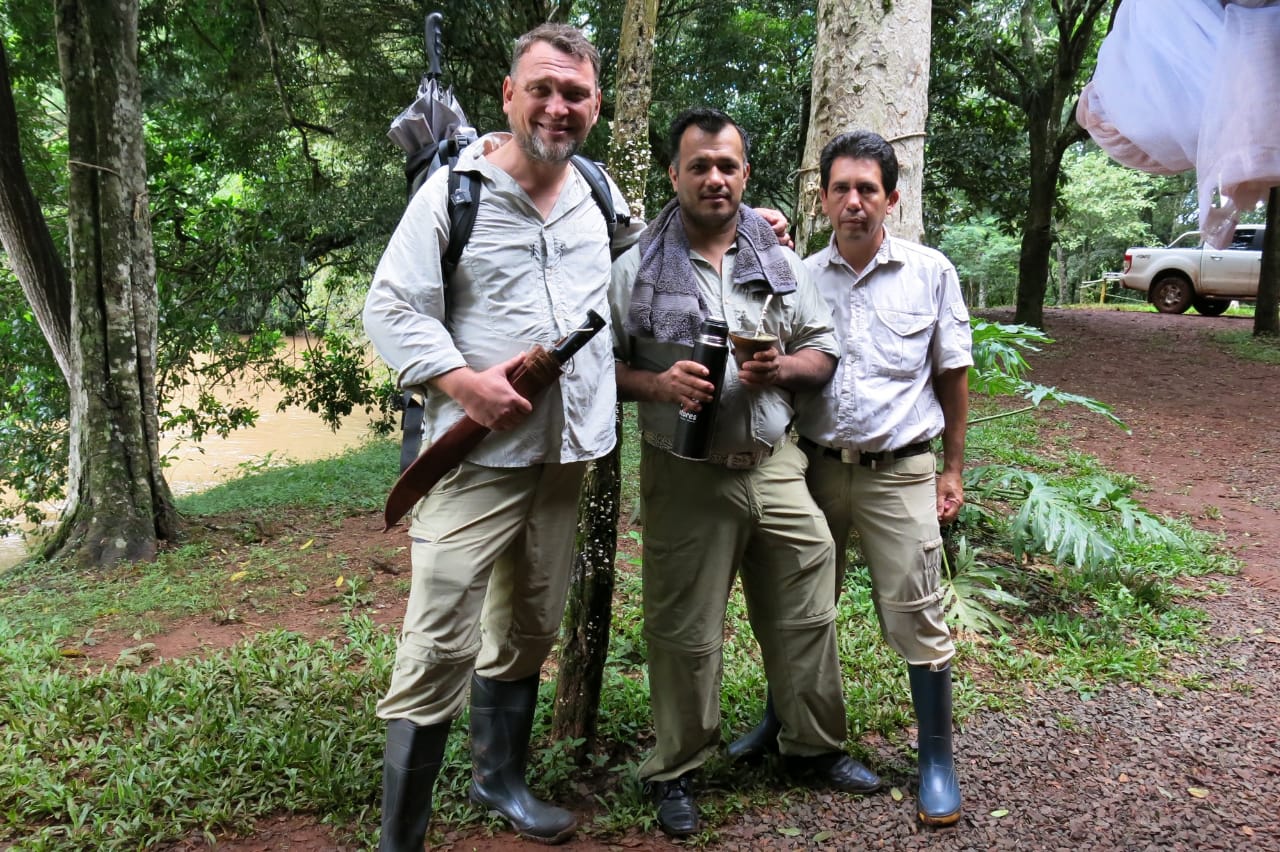
“The other thing that is great about Awasi is that you really get to know your guests. Every time I get into the car with a new guest, a whole new world opens up and each excursion is a different experience – every time you get to see it through someone else’s eyes and discover something new. Through this job I’ve gotten to know incredible people, the opportunity to work individually makes it unique, and most times it eventually feels as if you’ve met a new friend, and you feel genuinely sad when you have to say goodbye to them.”
What are your favourite excursions or things to do in Misiones?
“One of my favourite Awasi excursion is going to Alta Paraná and Salto Yasí. I lived by the ocean and was a fisherman, so I really love water and all excursions that include that.
“You get to go on a motor boat on the Parana River, one of the biggest ones in South America, and cruise along right between Argentina and Paraguay, which is sort of surreal. You get to this beautiful hidden waterfall, if the weather is nice you can go into the water.
“Depending on the guest we can sometimes go kayaking. We can learn some interesting facts about anthropology on a small historical site, and all that without barely seeing another human. It is a lot like what I would do with my own family on a perfect day off: try to find one of the more than 200 waterfalls and streams in Misiones, have a little barbecue, go for a swim with my wife and my kid. We love nature and that is the number one thing to do.”
If you could give one tip to a guest coming to Awasi Iguazu, what would it be?
“Arriving at a new destination, seeing so many options can be overwhelming, so instead of asking specifically what they want to do, I ask: “What does your heart tell you?”
“I prefer to hear about their interests, their bucket lists, their past travels and how they are feeling that day. Based on that, I get the sense of which excursion they’ll enjoy the most on each day, and I will try to make it all fit into their available time. Other than that, obviously, we have to see the Iguazu waterfalls!”
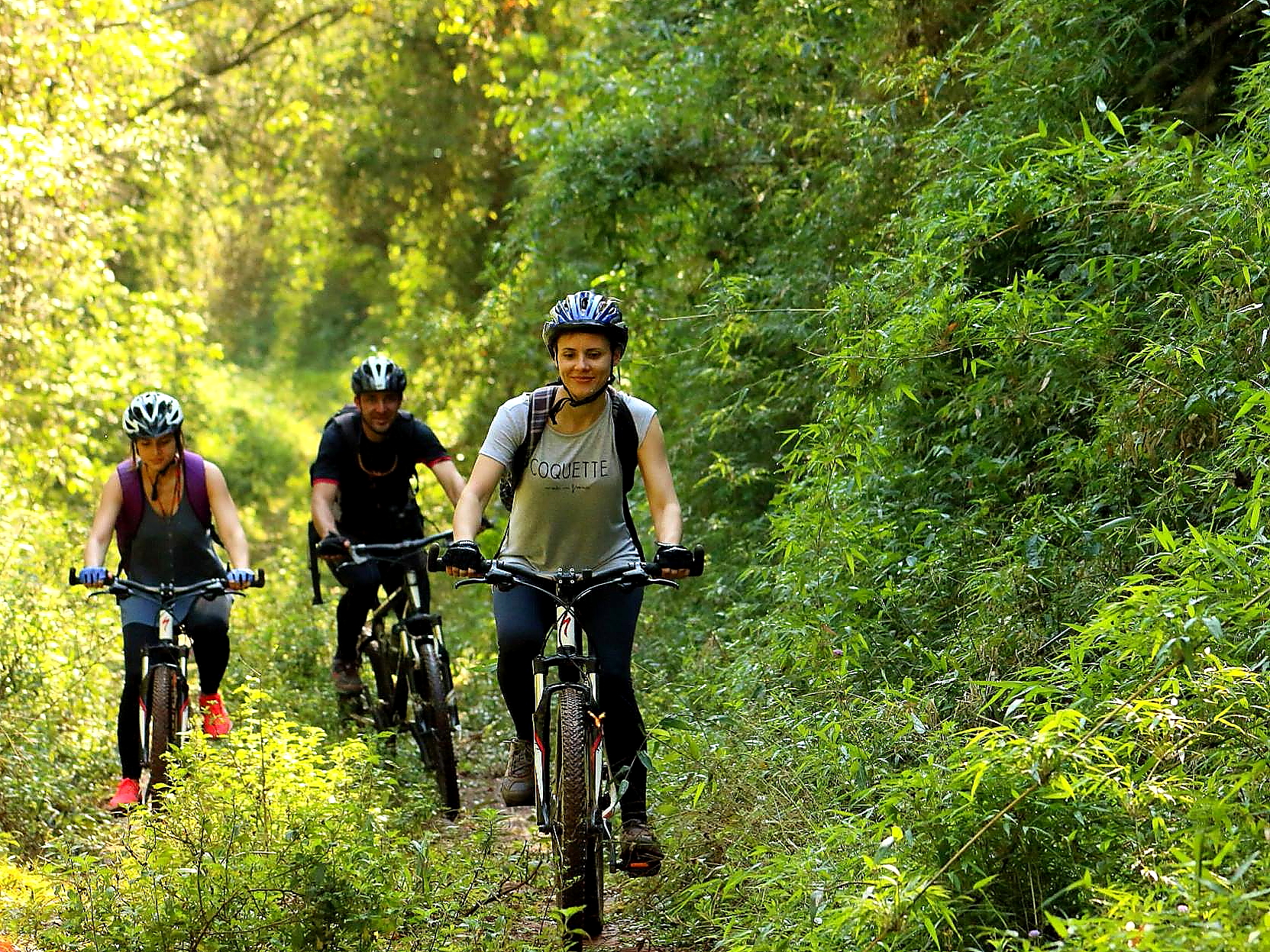
An adventurous bike ride through the lesser-known parts of the Argentine Iguazu National Park.
And now a quick-fire round!
○ If it came to a head to head, which team do you support – The Pumas or the Wallabies?
“I would support the Pumas. But it’s not because my father played with them or I live in Argentina, it’s because the Wallabies have an extensive history in rugby and against them the Pumas would usually be the underdog – and I always support the underdogs! It’s the same way if Australia played soccer against Argentina. In that case I would support Australia.”
○ Who can grill a better steak, Argentinians or Australians?
“Without a doubt, Argentinians. They don’t just grill the steak, they know how to grill the whole cow. The only problem is that many like their meat well-done, which goes against the taste of other nationalities. But if you find somebody who can grill well, they can grill exceptionally well.”
○ What’s your poison – tea, coffee or maté?
“It used to be coffee, because I just can’t be bothered with the whole mate ceremony, but here in Misiones where there’s always a mate available and ready to drink. Especially in the morning. It gives you just the right kick, it takes away your hunger. Mate is definitely my choice in the morning. But in the evening, when I want to relax and read a book, especially with a nice alfajor blanco… then it’s tea!”

